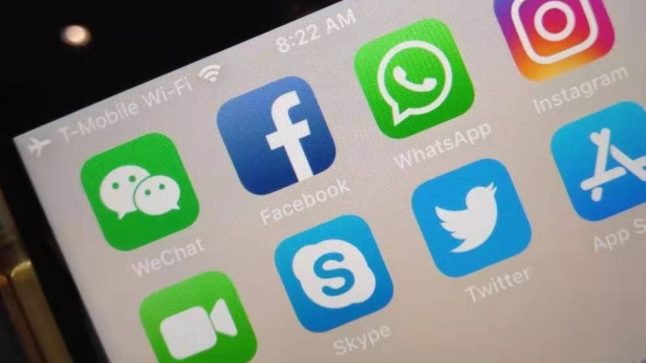Mark Zuckerberg’s memo on “privacy-focused messaging and social networking” has some really big implications. It is focused on private messaging and the WeChat-type operating system. To me, it looks like the first move in a strategy to turn Facebook into a much larger and more powerful company. That such a big power play is dressed up as a discussion of privacy is, to quote NYU Prof Scott Galloway, a “gangster move”.
First, let’s dispense with the privacy part. Facebook is in the surveillance business. They gather every bit of information they can get about you and then sell it in various forms of advertising and access. All their products and services operate with this surveillance-meets-advertising business model. This is. by definition, antithetical to privacy. And Facebook’s drip, drip, drip of privacy violations year after year is the natural result of this model.
So what to make of the Zuck’s many mentions of privacy in his memo?
I offer two possible explanations.
- The more cynical explanation is he is using the word “privacy” the same way Vladimir Putin uses of the word “democracy”. He is just co-opting and muddying the term.
- The less cynical explanation is he is following his customers. They increasingly want privacy (i.e., encrypted, ephemeral, non-public) so he is giving them privacy-focused products (at least in name). However, these privacy-focused products will still be within Facebook’s surveillance-meets-advertising business model. This is similar to Coca-Cola launching Diet Coke. Coke gave consumers what they wanted (healthier products) but they also stayed solidly in the caffeine and sugar business. Facebook’s privacy-focused products look to me like diet surveillance.
Either way, I think people are way past the point of taking either Mark Zuckerberg or Sheryl Sandberg at their word. So it’s better just to watch their actions.
Now onto the super ambitious/gangster part, which is much more interesting. And which Zuck described under the section about “interoperability”.
Ack. First off, ignore the term “interoperability”. I don’t think combining messaging for Facebook, Whatsapp, and Instagram is about improving interoperability for users. Give me a break.
I think this consolidation is about creating a global messaging service covering +2B people. And that is a big move. I also suspect it makes it harder for the government to reverse Facebook’s acquisitions of Instagram and Whatsapp (but not really my area of expertise).
A global messaging platform is a big deal. And it would also put in place the foundation for a WeChat-type operating system. And that is an even bigger move. I don’t think the Western observers have really appreciated this part yet.
First, some background on the WeChat operating system.
How Social Media in China Became a Healthy and Valuable Tool
Allen Zhang, the creator of WeChat, really figured out how to make messaging and social media a healthy and valuable tool. And that is what WeChat is in China today. It is not something for public expression, passive consumption or for wasting time. It is an incredibly useful tool that is effectively the operating system for your life.
And this is probably the most important difference with Facebook. From day one, WeChat has been focused on giving users tools that make their lives more effective and efficient. They are not interested in passive consumption. They are not playing with your psychology and creating addictions. They do not try to get you to post or spend more time on their services. They want WeChat to be a useful tool in your life, not a waste of your time.
WeChat started as a late-night email from Allen Zhang to Tencent CEO Pony Ma. Which led to a 10 person project team in Shenzhen, led by Allen. They quickly developed a simple, intuitive tool for private communication, which was launched in 2011. After a slow initial six months, it really started to get some traction. This ramp-up had a lot to do with the increasing adoption of smartphones in China during this same period.
One of the reasons Allen Zhang is referred to as the Steve Jobs of China is because he figured out social media from the consumer perspective. He identified early-on that messaging and social networks are more useful, more enjoyable and more frequently used when they are private.
This is kind of obvious in retrospect. Direct personal communication is something we just do a lot more of in life. In our personal lives, at work and in other situations. We don’t naturally do that much public posting and communication. Mark Zuckerberg’s belief that everything will be increasingly more transparent and more public was wrong (and self-serving).
Additionally, private messaging and social networks are much healthier. They are free of so much of the toxic behavior and unhealthy psychology that characterize public social media. We don’t see the heightened feelings of envy, the need to show off, the desire for validation and so on. In private messaging and group chats, you are your authentic self. WeChat today is still mostly (but not entirely) private. And Allen has said if he were re-creating WeChat today he would make more of it private.
The other really important thing Allen and his team did was private group chat. For every class I teach, there is a WeChat group chat. For every book project, there is a group chat. For every business project. For discussion topics. For industry or company reports. For business trips. For personal trips. For meetings. For parties. For weddings. For family. For friends. And so on. Private group is how you organize and discuss stuff. It’s really great.
Today, private messaging via WeChat has 1B daily users and it is how you communicate in China. People rarely check email. Nobody asks for your business card at meetings. Everyone connects and communicates via WeChat. Whenever I get a connection on LinkedIn from someone in China it always starts with “Hi. What is your WeChat?”.
Ok. Back to Facebook.
What Facebook seems to be doing is creating a similar private messaging platform for its +2B users. And by combining its three messaging platforms, it looks like they can get there in 1-2 moves. If their public social media products are not the future, private messaging and social media may be even bigger for them going forward.
And private messaging isn’t even their biggest opportunity. It sets the foundation for a much larger WeChat-type operating system. I’ll cover that in Part 2.
Thanks for reading, jeff
———–
I write, speak and consult about how to win (and not lose) in digital strategy and transformation.
I am the founder of TechMoat Consulting, a boutique consulting firm that helps retailers, brands, and technology companies exploit digital change to grow faster, innovate better and build digital moats. Get in touch here.
My book series Moats and Marathons is one-of-a-kind framework for building and measuring competitive advantages in digital businesses.
Note: This content (articles, podcasts, website info) is not investment advice. The information and opinions from me and any guests may be incorrect. The numbers and information may be wrong. The views expressed may no longer be relevant or accurate. Investing is risky. Do your own research.

